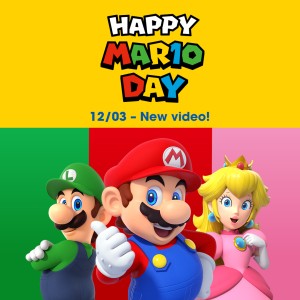Localising Hotel Dusk, pt. 2
14/05/2007
Did you work from the Japanese original text, or did you use the version translated by Nintendo of America's localisation team?
PL: We made a conscious decision early in the project to remain as true to the original Japanese texts as possible. That said, we quickly realised that NOA's English translation contained a vast number of subtle embellishments that would actually serve to maximise the atmospheric authenticity of the game.
You could say, in fact, that we were in the unique position of being able to make the most of both worlds, and I'm absolutely certain that this is reflected in the vibrant nature of our texts. An obvious exception to the rule would be UK English, where we simply fine-tuned the US English to make it more comprehensible for a British audience. However, I think Mark would like to talk a little about this...
MB: Thanks Paul. I should say first of all that the localisation by NOA was very successful in capturing the tone of a classic hard-boiled tale. Kyle Hyde himself was particularly well characterised, with a world-weary cynical sense of humour that worked perfectly.
As far as adapting the script for a UK audience went, clearly it's a game about a former New York detective staying in a hotel outside of Los Angeles, so we didn't want the characters to be speaking in Cockney rhyming slang. Therefore, I approached the localisation process by trying to have as light a touch as possible.
I wouldn't say there were any particularly big cultural barriers to contend with; people in the UK grow up on US cop shows after all, and crime fiction by writers like Raymond Chandler and James Ellroy is hugely popular. Having said that, there were a few colourful US expressions that left me scratching my head and which I decided to modify. Taking a powder' to refer to doing a disappearing act springs to mind, along with sawbuck ' as a reference to money and land's sakes ' meaning for goodness sake among others. There were also a lot of words that would have confused UK players, for instance a case where birds' is used to refer to people'.
Hotel Dusk is a game about Americans, made by Japanese developers, which you had to prepare for Europe. Are there situations in the game where you felt those diverse influences were obvious, and did you ever run into any big problems preparing the game for Europe?
MB: I think the Japanese image of America is formed to a large extent by the same Hollywood movies, TV shows and novels as people in the UK grow up consuming. Although the game was developed in Japan, I think it successfully avoids being an overly-stylised, artificial vision of America. It has the tone and look of an authentic American crime novel or movie.
RA: The atmosphere that the development team created for the story and the characters was absolutely perfect, very close to the portraits we can read in books or see in movies. Spanish players are used to American noir films and novels, and the way situations are presented in them, so we tried to take advantage of this and recreated the whole game as one of those stories.
FC: Personally, I had some hard times when I had to face an American reality which wasn't immediately clear to an Italian audience. Italians are used to Hollywood movies, of course, but many of them are at a loss when asked about a pancake's recipe or where Utah is. In my opinion, Italian people tend to have too general a view of the United States. While, it may sound absurd, Japan can be defined as being closer to the US than Italy is. In fact, the image emerging from the game was adopting American elements that are well known in Japanese society, such as certain kinds of food, or images and so on. However, these elements were hard to place smoothly in an Italian context, as they are not so well known as in Japan. But hey, that's the lovely challenge of being a translator! (laughs)
FV: Strongly situating the game geographically and stylistically gave me some liberty in the translation. French people and especially game players are aware of some American cultural aspects they discovered through movies, music, etc. For example, I left the names of the rooms in English in the text, partly due to technical issues, but also because it was not a major problem as the story is clearly happening in the US. Nevertheless, there are defined formats, such as dates, that I had to change so the player wouldn't get confused.
TI: During translation, we could compare the Japanese source text and an American localisation prepared for the US market. There were some striking differences between the two texts, and we always had to try and find a balance between the original text and the very hard-boiled adaptation for the American market.
Can you give some examples of situations where you really had to be creative to make the game work in your language?
RA: One of the first instructions we received was to make the script look real. We did not want normal people in a hotel speaking as if they where in a stage play. We worked hard on giving each character a style according to their role in the story, and most importantly, making them speak naturally.
This game is about conversations, and dialogue plays the most important role, so we focused on adapting the text to read like vivid dialogue - as if you were hearing someone speaking. To do this, we tried to reproduce common spoken language at all times.
FV: The Japanese text was taken as a reference but we also had the US text which was very different from the original atmosphere created by the developer. The direction taken by NOA was to strongly characterise the game to make it authentic to the US players, which I perfectly understand. The problem is that, in my opinion, in some parts, the game was lacking a sense of reality. I liked the Japanese atmosphere, serious and focused on the story rather than on the characters. So I tried to stick to the Japanese atmosphere, avoiding adding too much text which would have bored the player.
As for the text itself, the Japanese was a little robotic, always using the same messages in different places, for example when knocking on doors, showing objects, and so on, so I tried to put some diversity in such messages.
Finding a style for all the characters which are obviously not familiar to a French audience was a bit of a challenge. I tried to find a compromise between the stereotypes they represented, their graphic representation and the geographical and temporal context in which they were set.
FC: I remember that I worked a lot on Louis' character. He was as well characterised as any other, but for me he was the hardest to position in Italian due to the way he is presented: a tough guy from New York. He is a type that barely exists in Italian society. I tried to figure how a man like him would live, speak and think in Italy and I put my efforts to stick to the overall image more than to the specific words. To do this, it's only natural that I had to use some expressions which are uniquely Italian and the uniqueness of his character allowed me to really use my creativity! (laughs)
TI: To put it in a nutshell, a translator of video games always has to apply a lot of creativity to make a screen text work properly in his own language. But I think that this is just what makes our job so rewarding.
Hotel Dusk: Room 215 is in stores now, only on Nintendo DS.





